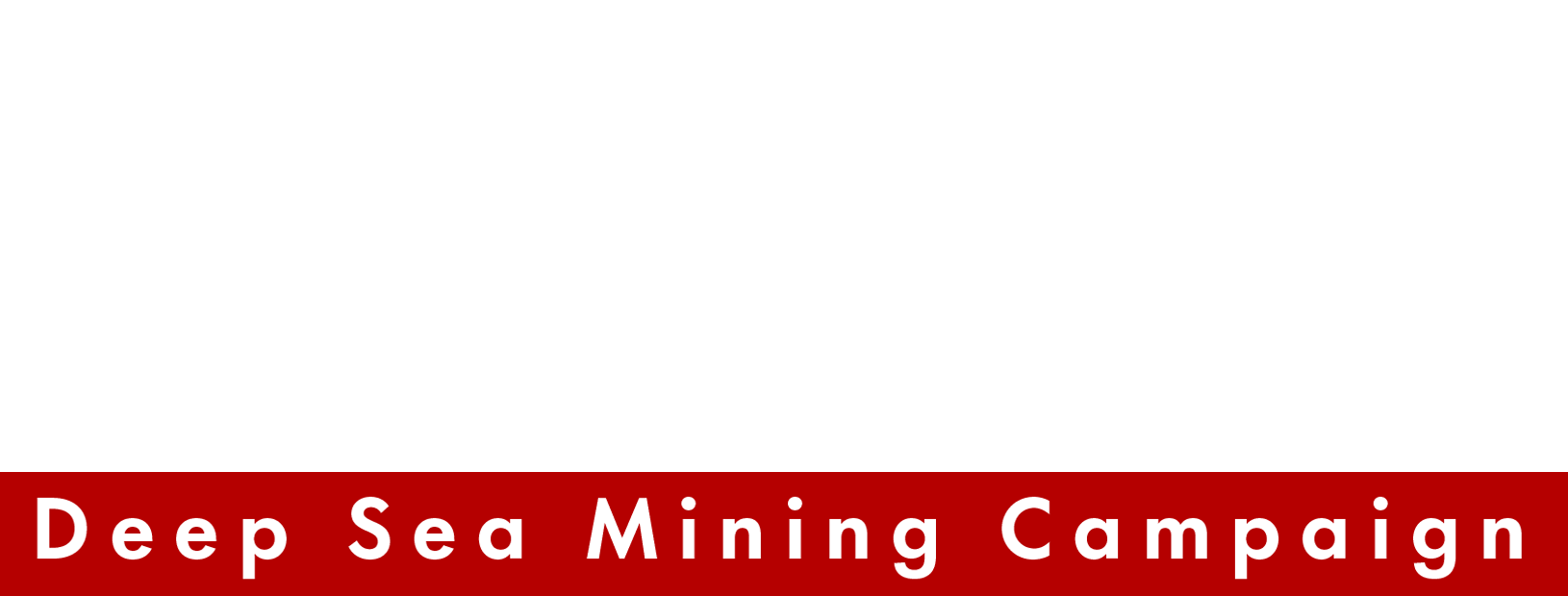Report: unacceptable impacts from deep sea miner Nautilus

DOWNLOAD REPORT HERE (2mb)
For a high-resolution version of the report please contact communications@dsm-campaign.org
Overview
Canadian mining company Nautilus Minerals Inc. (Nautilus) is set to embark on the unprecedented extraction of metals from the sea floor. The mining project, known as the Solwara 1 project, will extract gold and copper from the floor of the Bismarck Sea in Papua New Guinea. It is the first of a potentially large number of deep sea mining projects within the Bismarck Sea and wider Pacific Region.
The focus of deep sea mining (DSM) is the deposits laid down over thousands of years around underwater hot springs, or hydrothermal vents. Nautilus has secured or is in the process of applying for the exploration rights to 534,000 km2 of the sea floor in PNG, Tonga, the Solomon Islands, Fiji and New Zealand. Many other companies are waiting to see how Nautilus fares before taking the plunge themselves.
Being the world’s first commercial DSM operation, there is a high level of uncertainty about the risks posed to marine environments and communities. What is certain is that impacts will be associated with each step of the mining process.
Sea floor volcanic systems, deep sea ecosystems and the spread of pollution from deep sea mining are not well understood. Thus, it’s not possible to predict the impacts of any individual DSM project, let alone the cumulative impacts of the many DSM projects proposed for the Bismark Sea and throughout the Pacific.
Because of these uncertainties, the Solwara 1 project establishes a frightening precedent – the company has been granted a 20 year mining lease on the basis of a flawed Environmental Impact Assessment (EIS). Furthermore, no studies of social, cultural, health or economic impacts have been conducted by either the Government of Papua New Guinea or Nautilus. In nearby communities confusion reigns – with the notable absence of free and informed prior consent (FPIC) regarding the project.
The development of regulatory frameworks for DSM is a priority before the deep sea meets with the ‘gold rush’ that is set to ensue. Such frameworks must incorporate the voice and concerns of communities and civil society representatives, must mandate FPIC, and must be based on rigorous and independently validated studies of the environmental, cultural, economic, health and social impacts of any proposed project. Furthermore, cumulative effects must be considered in regard to each of these dimensions as each individual project seeks approval.
RELATED
The Metals Company Under Huge Financial Pressure
Significant cracks are showing in The Metals Company’s (TMC) financial stability following their recent investor update. Andy Whitmore, Finance Advocacy Officer for the Deep Sea Mining Campaign, focuses on the recent financial report, exposing risks and failures in...
Global insurer rules out doing business with deep sea mining companies
By Liam Fox ABC Pacific Beat, 19 February 2024 Radio Interview with Andy Whitmore, Finance Advocacy Officer, Deep Sea Mining Campaign A major global insurer looks to have become the first to rule out any involvement in the deep sea mining industry. In its new policy...
Swiss Re, first insurer to exclude deep sea mining
Swiss Re has become the first insurer to exclude deep sea mining. One of the world’s biggest reinsurers Swiss Re joins a growing number of global financiers rejecting the unnecessary and potentially catastrophic industry of deep sea mining. The new policy appears in...
The Metals Company construct their own reality
15 November 2023 | Media Release | Deep Sea Mining Campaign The Metals Company (TMC) continue to peddle their own version of reality, as they and their sponsoring state Nauru hold a gun to the head of governments at the International Seabed Authority (ISA), by...
The Metals Company thwarted in its rush to mine the deep sea
After three weeks of negotiations at the International Seabed Authority (ISA) no regulations on deep sea mining were adopted despite wannabe-miner The Metals Company (TMC) and its sponsoring state Nauru attempting to rush the process. This session was billed as...
